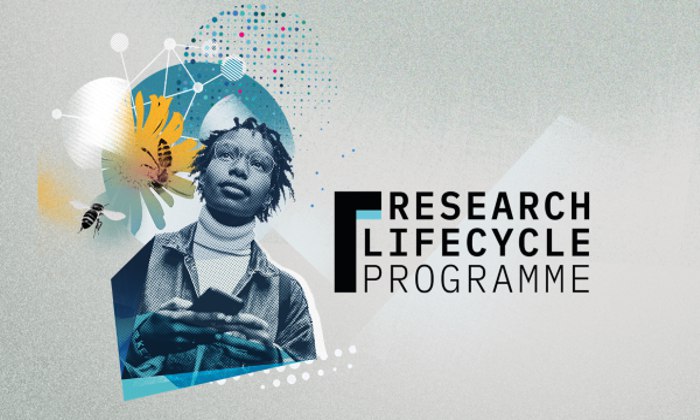Successes of the Research Lifecycle Programme (RLP)
28 Apr 2023
The Research Lifecycle Programme has been running for almost four years and is designed to transform our research IT environment

In that time the programme has developed and implemented dozens of new products and services to help researchers and professional services staff to ensure that our University continues to deliver world-class research.
The Research Lifecycle Programme (RLP) is a strategic investment. This means that it brings together the funds that our University and faculties had planned to spend in developing products and services and uses it to fund projects that support one another, maximising and multiplying that investment.
The programme is focused on three areas:
- Research Information,
- Research Processes, and
- Research e-Infrastructure.
This means that it is very likely that you have seen, heard or used a product of RLP, without even realising it.
One of the most significant improvements in Research Information has been the improvements to Research Explorer with the addition of Pure Project Portal and Pure Awards Management. This has helped researchers to raise their profile and more easily develop collaborations.
This workstream has also developed new survey tools. REDCap is used by researchers for longitudinal projects involving highly restricted data, and Qualtrics XM is used by colleagues to quickly gather feedback about events, conduct research, and even assess accommodation requirements for our new students. Also included in this strand are tools for researchers such as Overleaf and remote access to Office 365 enabling regional, national and international collaboration.
There are further developments on the horizon with a final roll-out of the Highly Restricted Data Service not too far away.
Improving Research Processes has led to a new research costing tool being offered. BlackDackel helps researchers to model the costs associated with grants, including staffing, data storage charges and more. It helps to ensure that there are no nasty surprises once a grant gets underway.
Behind the scenes, this strand has also seen significant improvements to the way that research projects are supported through competency management and business tooling.
The programme is also working to develop the Research Risk Profiler, a simple questionnaire that will help researchers to identify programme risks. Completing the checklist will signposts researchers to resources and processes that they can use to minimise risk, ensuring that they can start work as soon as funding is received.
RLP has made significant investments in our Research e-Infrastructure. The programme procured what is now known as the High Performance Computing (HPC) Pool and contributed 15% of the costs of the new Computational Shared Facility (CSF). These two investments have enabled researchers to tackle larger and more complex problems than ever before. Cloud computing is another area where RLP has helped our University. Researchers are now able to use Amazon Web Services in their work and pay for them directly from their research funds.
Future developments from this workstream will see further improvements to our data storage systems making them more robust and responsive.
These examples barely scratch the surface of the projects completed by the Research Lifecycle Programme. You can find out much more about the breadth and depth of the programme’s work by visiting the RLP website. You’ll also find links to more information about each of our University’s activities that RLP has funded, supported and developed.
